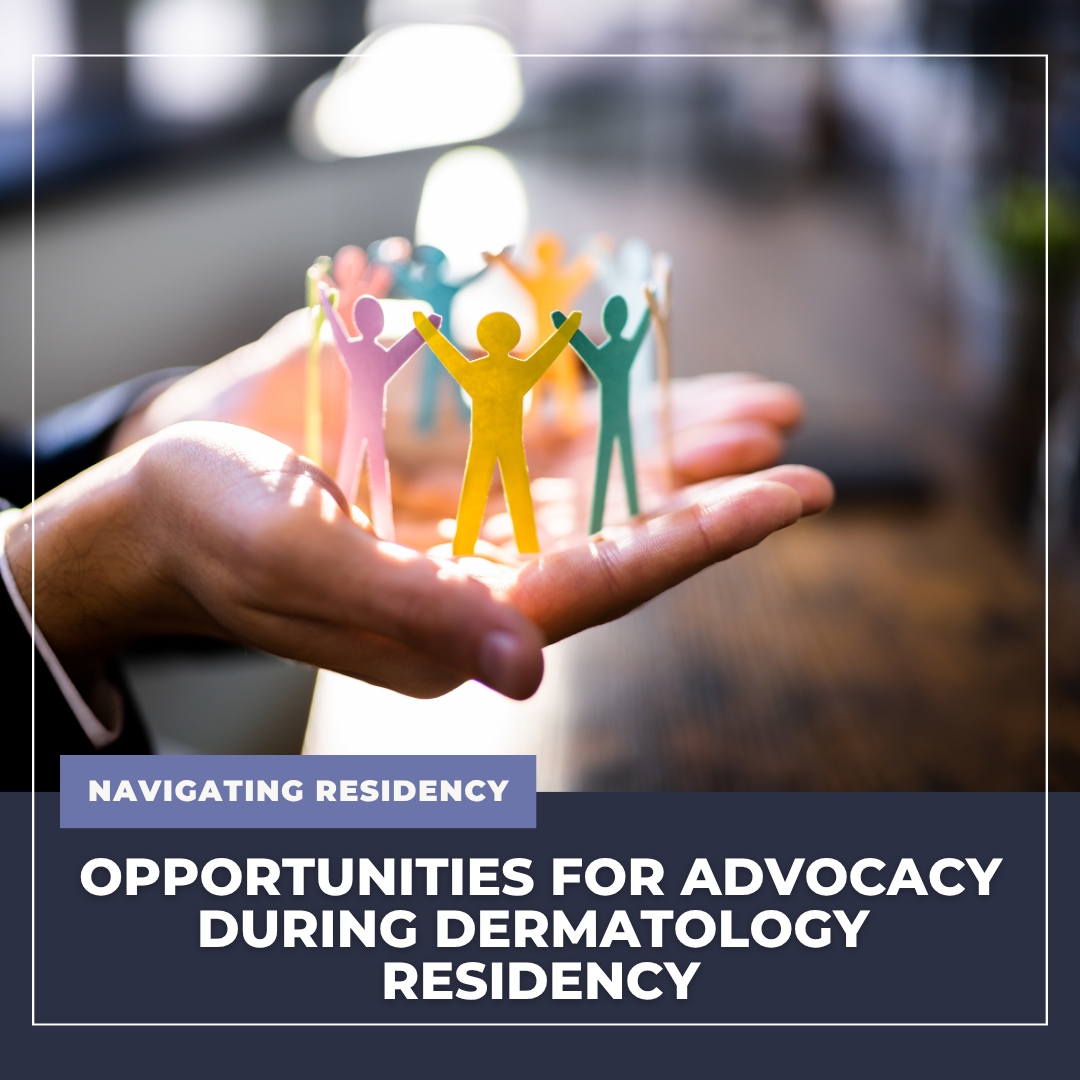Dermatology residency is an intense and rewarding period focused on clinical excellence, but it is also a key window for advocacy and leadership development. For many residents, advocacy may feel like something reserved for when they are an attending and/or established within their careers. In reality, residents are uniquely positioned to shape the future of dermatology through meaningful engagement.
Local and National Professional Societies
Most dermatology organizations, including the AAD, ASDS, and state societies, have resident committees and delegate opportunities. Participating in these groups not only strengthens your voice but also offers mentorship and exposure to health policy, diversity initiatives, and workforce issues. The AAD’s Academic Dermatology Leadership Program is an example of an early pathway into organized medicine. In addition, the dermatology trainee advocacy group has both national and state-specific groups in which residents can become involved.
Advocacy Days and Legislative Visits
Resident involvement in specialty-specific advocacy days, such as the AAD’s legislative conference, offers the chance to directly speak with lawmakers about skin cancer prevention, Medicare reform, step therapy legislation, and more. These experiences provide an opportunity to connect with fellow residents and gain mentorship from attendings, while empowering you to influence healthcare policy.
Residency Program and Institutional Leadership
Advocacy begins at home. Serving on residency or hospital committees (i.e, GME councils, DEI task forces, or curriculum development boards) allows you to champion change that improves training environments and patient outcomes.
Research and Academic Advocacy
Publishing or presenting on advocacy-related topics, such as healthcare disparities in dermatology, access to care, or various quality improvement projects within your own hospital or program, can amplify your impact and contribute to academic dialogue.
Social Media and Public Education
Residents can play a crucial role in combating misinformation and promoting evidence-based skin health via social media. Sharing educational content or joining campaigns like #MelanomaMonday or #SunSmart can expand your influence beyond the clinic and are all forms of advocacy.
Final Thoughts
Advocacy is not limited by your level of training. Residency is the ideal time to find your voice, align with your passions, and contribute to a more equitable and effective healthcare system. Whether through policy, education, or grassroots initiatives, your engagement can leave a lasting mark on the field of dermatology.
Did you enjoy this article? You can find more on Navigating Residency here.

